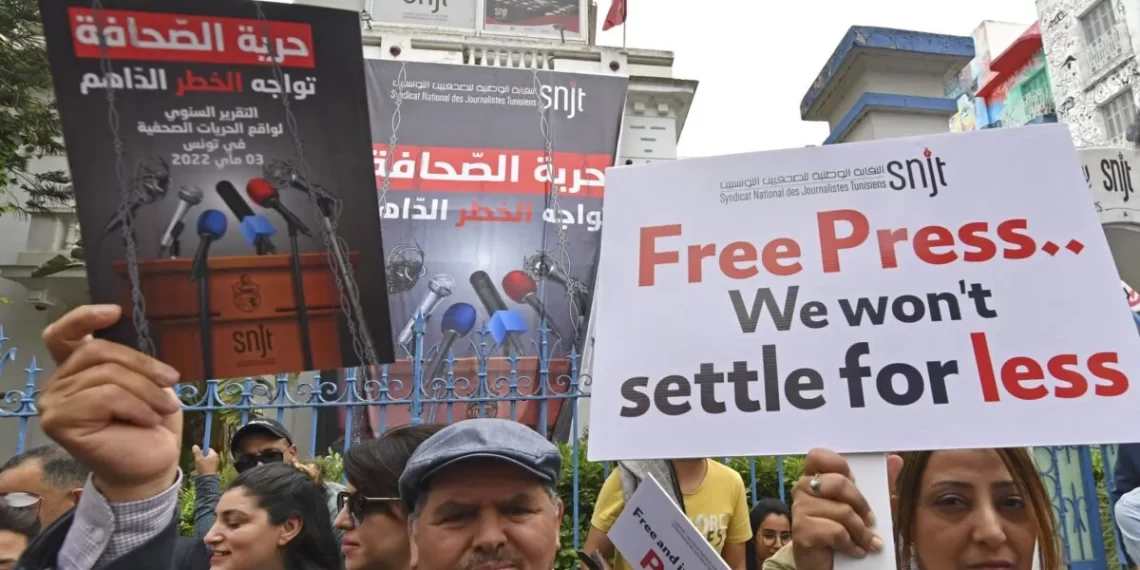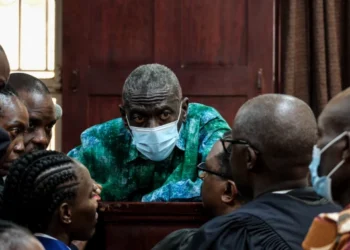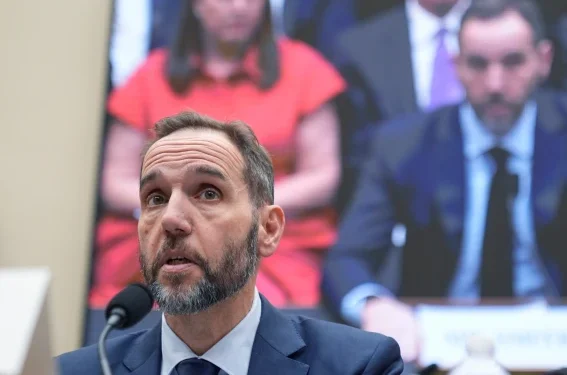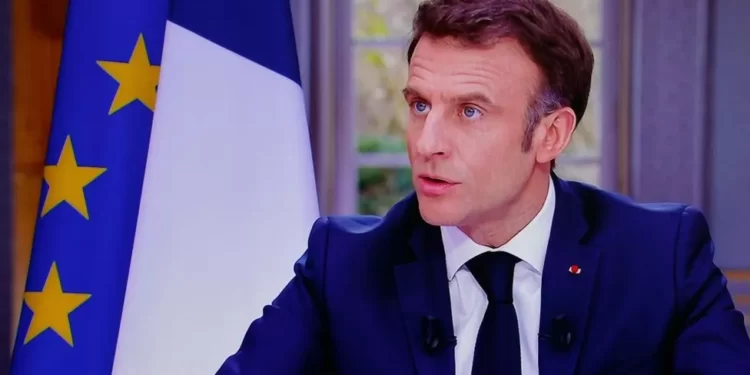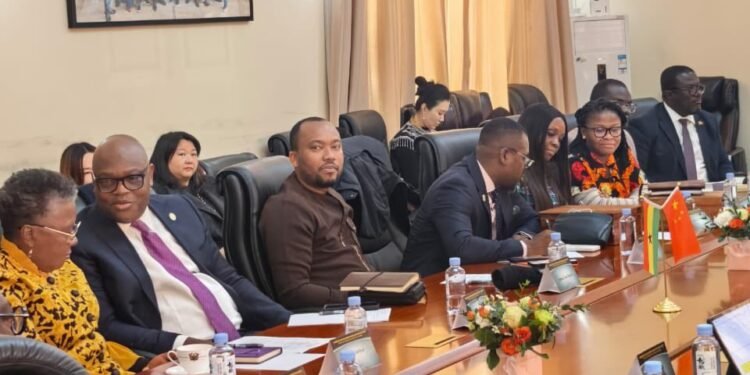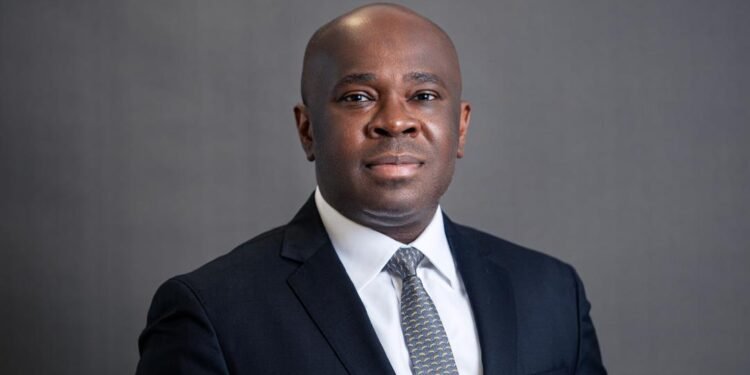Tunisian political commentator Haythem El Mekki of Mosaique FM, has expressed a deep concern about how Media Freedom has been on the decline in recent years. Mekki shared his recent near death experiences, he has encountered in his line of duty.
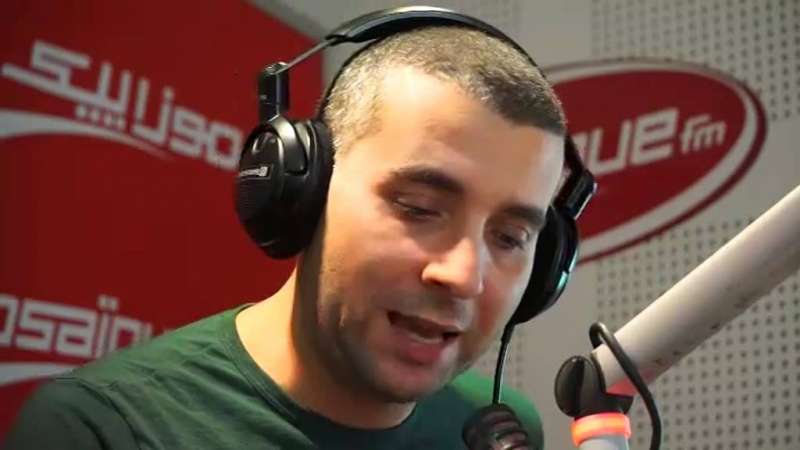
“I’ve been targeted on a daily basis and on a massive level since the revolution. I’ve been threatened physically dozens of times, they’ve also sent ricin to the radio station where I was working,” Haythem El Mekki said. He further on said, if not police intervention, he would have been assassinated by the hardline groups,that have been targeting him.
Nonetheless, despite his encounters with everyone from religious radicals, to Zine El Abidine Ben Ali’s pre-revolutionary era, it is the introduction of Article 54, that criminalize anything online that the authorities deem them as “fake news.” The law has brought changes throughout Tunisia’s national media space, for the past two years, that has singled out El Mekki and his compatriots, bringing the closer to arrest.
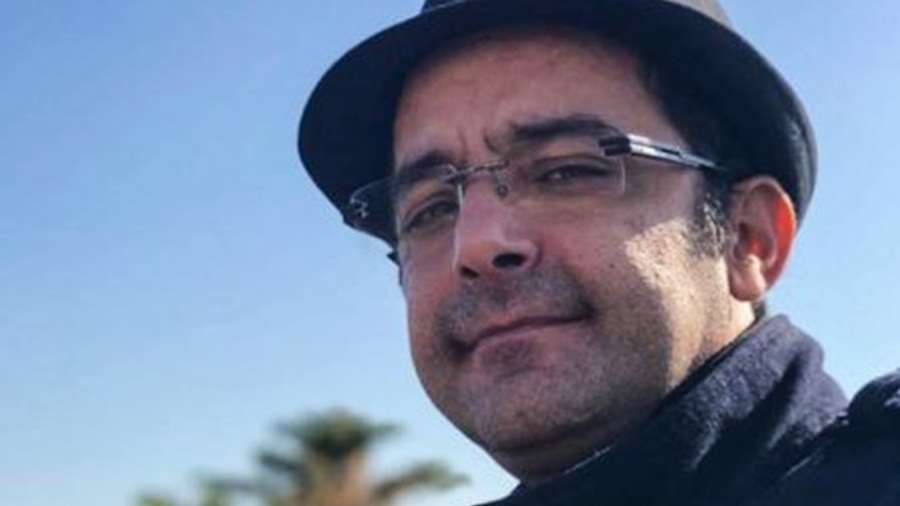
However, media practitioner, Nizar Bahloul, the editor of Business News, an online publication, got arrested under Article 54, for an editorial exposing the Prime Minister’s lack of achievements in 13 months in power.
Moreover, under the rules of the article, Ahmed Bahaa El-Din Hamada, a college student, was detained for posting on social media about a protest in his neighborhood. Lawyers, former politicians, and former members of the electoral commission, have all been charged under Article 54. The Amnesty International has describe the article as “draconian.”
“The main problem is not the article itself, it’s in its application. When you see the editor of Business News prosecuted for something he published, you’re left thinking, what next? The law itself is about tackling ‘fake news’ on the internet, but the Business News piece wasn’t fake news, it was just opinion. Others talk about abuses committed by a minister, and they’re also prosecuted. It’s clear that this wasn’t written to combat fake news. It’s there to shut the mouths of journalists who are critical of the system, that’s all.”
Haythem El Mekki, Political Commentator for Mosaique FM.
In recent months, the country’s news agency, Tunis Afrique Presse (TAP), has been led by a vocal advocate of ex-President Zine El Abidine Ben Ali, with a major changes in content production.
La Presse, the country’s state publication, recently published an article titled Merci Monsieur Presidente, which means, “thank you, sir president,” the National Syndicate of Tunisian Journalists (SNJT), criticized the state television channel as a “trivial propaganda mouthpiece that excludes all opposition voices.”

Additionally, Reporters Sans Frontières (RSF), revealed its current global rating in media freedoms in early May. The ratings indicated a decline in Tunisia’s media freedom, from 94th already pretty low to 121st position out of 180 nations examined.
“Tunisia has fallen in this ranking for several reasons,” said Khaled Drareni, RSF’s North African representative, highlighting Tunisia’s political environment, including the pursuits and attacks on the president’s opponents and his authoritarian turn.
The landscape isn’t completely desolate. Independent radio, such as Mosaique FM, where El Mekki works, and titles such as Nawaat and Inkyfada, continue to provide ethical journalism, Khaled said. Outside the SNJT offices in Tunis, journalists organized a rally to react to the President’s against the undocumented Black refugees and migrants in Tunisia.
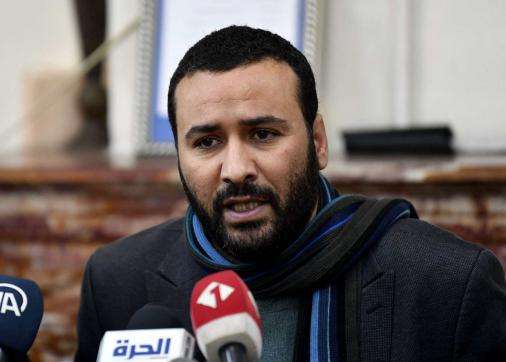
“We get abused, People insult us online. Mostly you get used to it,” Mohamed Mehdi Jlassi, the president of the SNJT, disclosed. “However, before Article 54, there were laws protecting the rights of journalists to write what they have seen and what they know,” he added.
“There was always bullying, I’m not saying it was great, but there were laws. Article 54 changed everything. There are now 17 journalists being prosecuted under the terms of this law. It isn’t just journalists. There are actors, politicians and activists, all of civil society faces legal issues,” Mehdi said.

